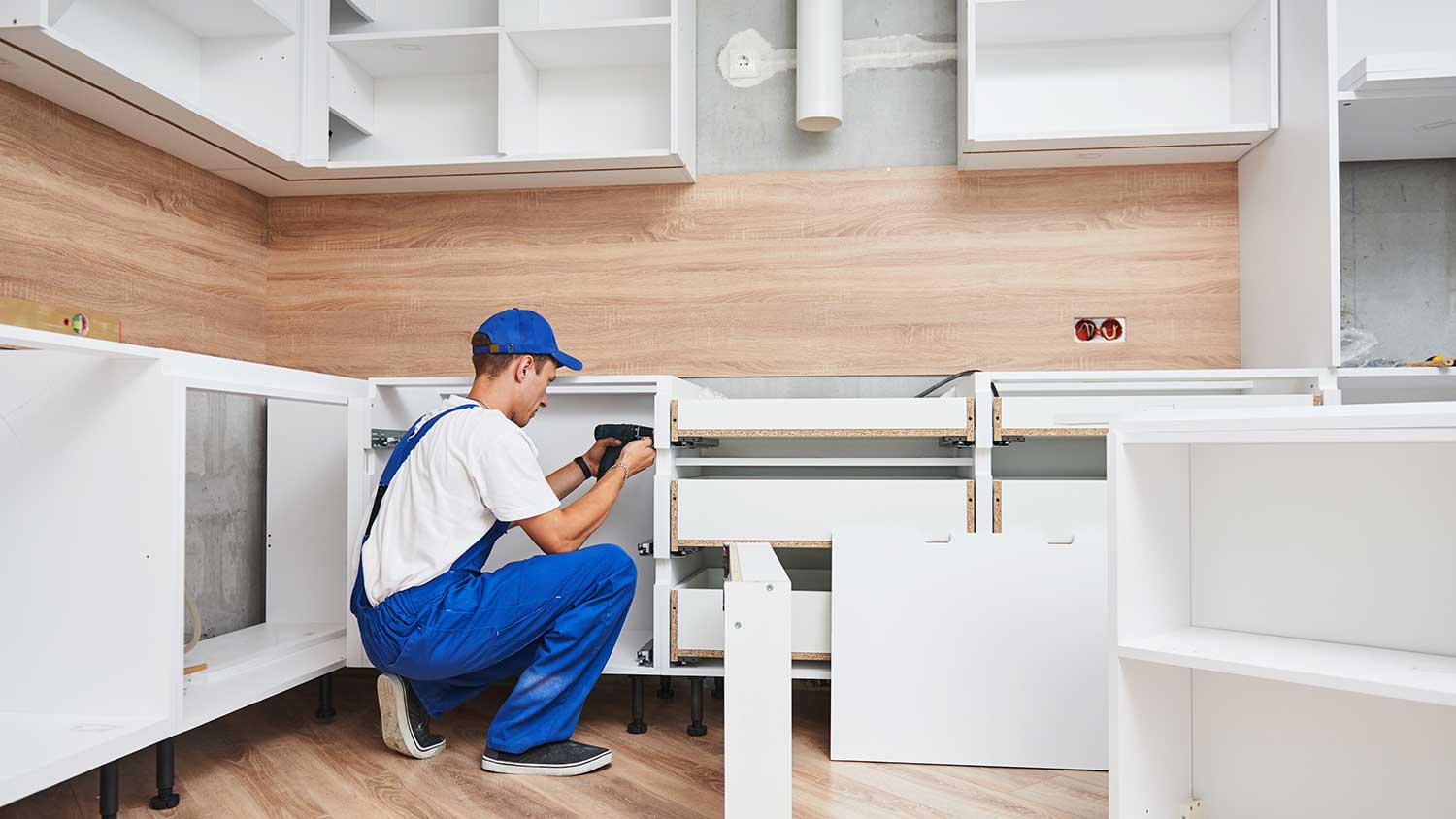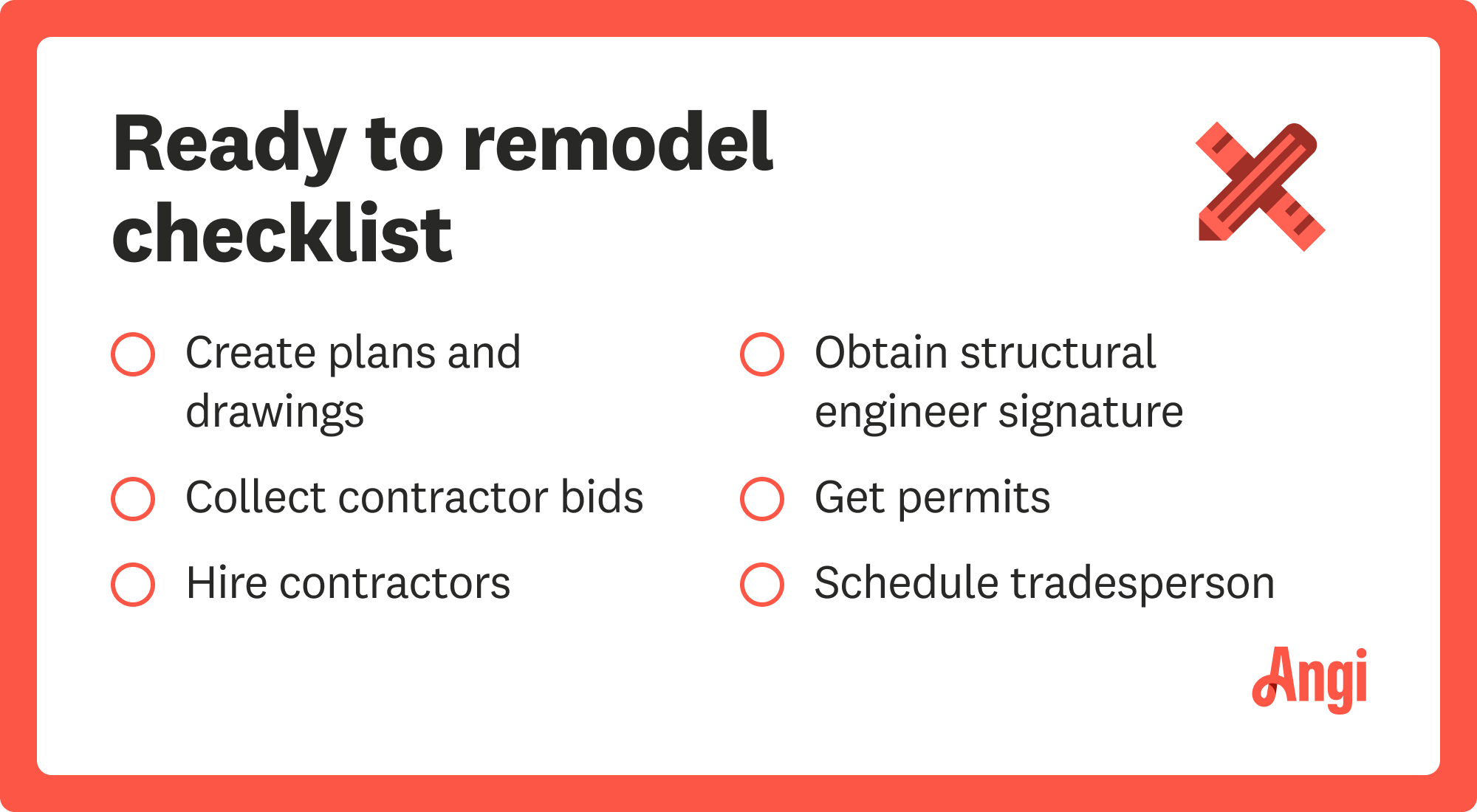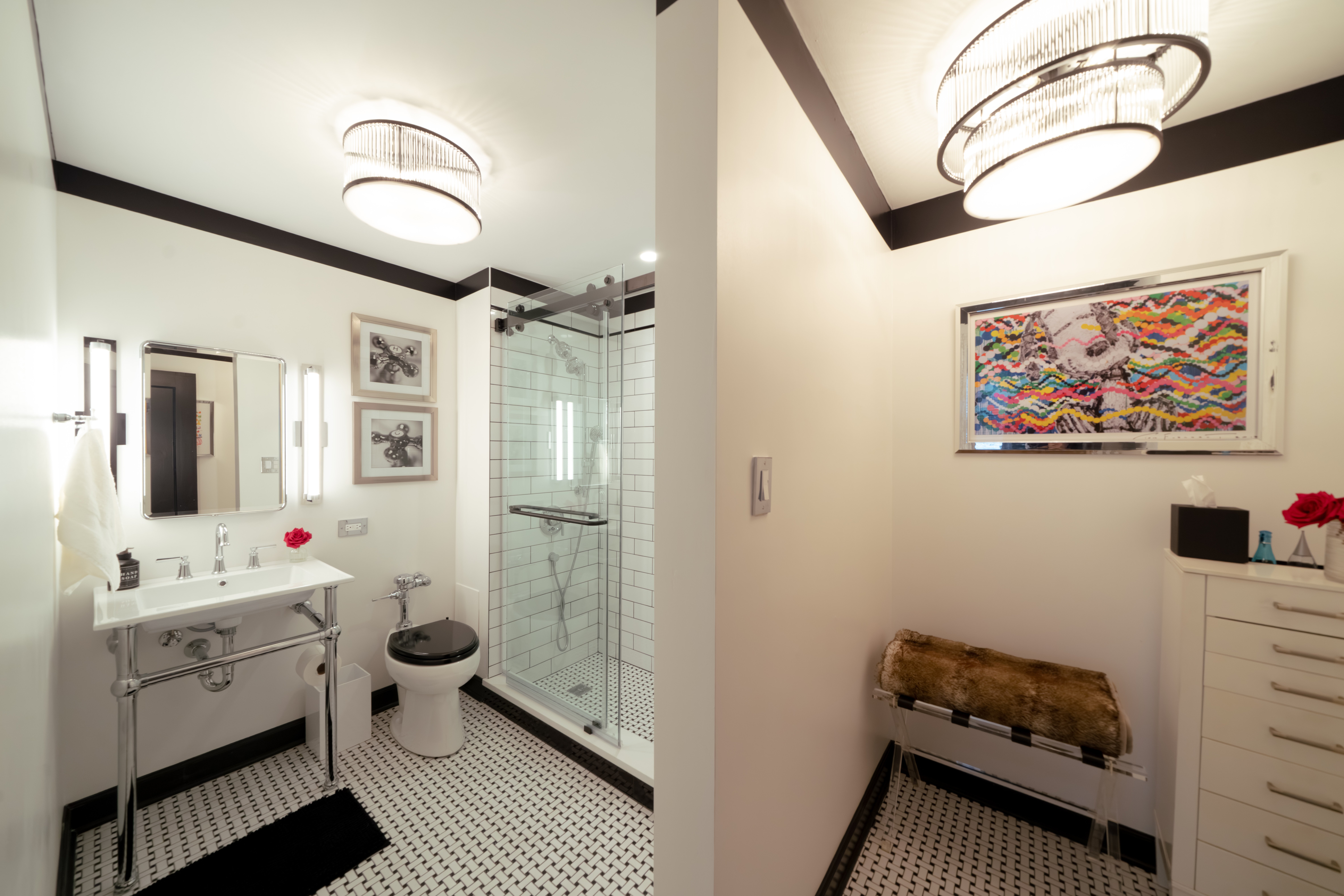
Shower installation costs depend on size, style, and materials. No matter the budget, this guide can help you plan your project and even save a few bucks.
Your dream kitchen is worth the wait


Remodeling a kitchen can take 5 to 8 months, from planning to post-construction cleanup.
The bigger the remodel, the longer your project will take.
Other factors that affect the timeline include permits, subcontractor schedules, material availability, and potential unforeseen issues.
You can help the project move faster by choosing premade materials over custom ones and keeping an open line of communication with your contractor.
Your kitchen is one of the most important rooms in your home. Not only does it provide a place to prep, cook, and serve meals, but for many, it’s also a gathering place for friends and family. So, if your kitchen is drab and dated, it might be time for a remodel. But how long does a kitchen remodel take? This guide breaks the project into phases so you’ll know what to expect during your kitchen makeover project.

A kitchen remodel is a major home renovation project that can take several months to complete. From planning to completion, here’s how this project usually pans out.
Estimated Time: Two Weeks to Three Months
The first phase in a kitchen remodel project is planning and design, which can take as little as two weeks or as much as four months, depending on the project scope. During this phase, you’ll hire a kitchen remodeling contractor and work with them to determine the extent of the remodel based on your requirements and budget.
Review and approve construction designs, including the floor plan, lighting, electrical, furniture, and appliances
Plan a budget for the materials you want in your kitchen
Choose your appliances, fixtures, countertops, cabinets, backsplash tiles, flooring, and cabinet hardware
Estimated Time: Two to Four Weeks
Once you have approved the design of your kitchen remodel, you or your contractor will need to apply for the proper permits required by your municipality. The permit approval process can take up to four weeks, depending on the inspections you need and the backlog of permits at your local government office.
The permits you need depend on the work you’ll be doing during the remodel. Electrical and plumbing work usually requires permits to ensure the resulting work meets local building codes. If you leave the task of applying for permits to your kitchen remodeling contractor, the phase can be much less stressful. Contractors deal with permit applications and inspections regularly, so they know how best to navigate the system.
Estimated Time: One to Two Weeks
This is when your contractor creates a blank canvas for your brand-new kitchen. The more work involved in demolishing your existing kitchen, the longer this phase will take.
Dismantle and remove countertops, cabinets, appliances, flooring, and tiling
Demolish walls if you’re changing the floor plan and layout
Estimated Time: Eight to 12 Weeks
Your kitchen remodeling contractor will start with any necessary electrical, plumbing, or HVAC work; they may do this part themselves or hire subcontractors who specialize in these areas. Inspectors will visit to ensure the work is up to code.
Then, it’s time for the main features of your new kitchen to go in, including cabinets, countertops, flooring, lighting, and appliances. If you buy everything prefabricated, this phase can move fairly quickly. However, if you opt for custom cabinets or countertops, expect potential manufacturing delays.
Estimated Time: Two to Four Weeks
This final phase includes:
Any required final inspections
Your walkthrough with the contractor
Sign off and payments
During this phase, don’t be afraid to test and inspect every inch of your new kitchen. Check the faucets, all electrical outlets, the appliances, the cabinets and cabinet hardware, and the countertops with a critical eye, and let your contractor know if you spot any issues.

Several factors can affect your kitchen remodel timeline. Learn more about them below.
The more extensive your kitchen remodel project, the longer it will take.
A minor remodel focusing on cosmetic aspects, like painting cabinets and installing a new backsplash, may only take one to two weeks since you won’t need to worry about permits, inspections, and subcontractors.
A midrange remodel focusing on replacing cabinets, countertops, and appliances may take four to eight weeks. This type of remodel requires more work and may be held up by manufacturing or delivery delays.
An extensive remodel that rips out the entire kitchen, reconfigures the layout by moving or removing walls, and replaces everything in the room, will take eight to 12 weeks or more.
Most kitchen remodels take six to 10 weeks, so be ready to order takeout and spend a bit more time in your living room for a few months.
Your timeline can vary depending on the type and number of permits and inspections you need. If your plan includes plumbing, electrical, or HVAC work, you must secure the proper permits and have inspections before installing cabinets and countertops. If your local municipality has an abundance of permits to approve, it can take longer for them to get to yours.
Unless your kitchen remodeling pro is a certified electrician, plumber, and HVAC technician, they’ll need to hire subcontractors to complete this part of your kitchen remodel. The more subcontractors involved in the kitchen remodel, the higher the chance of delays. You or your general contractor will need to coordinate the schedules of multiple pros, which can be tricky to navigate.
Kitchen remodel costs can reach as high as $41,550. When you’re spending that kind of money, you want to ensure the finished product is exactly what you want, which might mean ordering some custom materials. If the material you want is unavailable, you may face delays while you wait for the supply chain to pick back up.
As with any home improvement project, you may experience unforeseen issues that cause delays. For example, you might remove the old drywall in your kitchen to reveal extensive water damage that you must fix before proceeding.
Other potential issues that can extend the project length include:
Shipping delays
Contractor illness
Permit holdups
These issues can also increase your budget, so it’s wise to plan to save more for the project than your budget says you’ll need.

Kitchen remodels can take months, which can impact your entire household. You’ll need an alternative place to prep, cook, and wash dishes during the project—or you’ll need to rely on takeout while the remodel is happening. If you want to decrease the time your kitchen is out of commission, the following tips may help you to save time.
Establish a clear budget from the start.
Avoid changing the plans once you’ve approved the initial design.
Ask your contractor what prep work you can do to expedite the project.
Be available and communicative with your contractors.
Make payments to your contractors on time.
Purchase materials as early as possible to avoid shipping or supply delays.
From average costs to expert advice, get all the answers you need to get your job done.

Shower installation costs depend on size, style, and materials. No matter the budget, this guide can help you plan your project and even save a few bucks.

Building an addition can increase your home's value and provide more space to live, but it does come at a cost. Read on to learn how much it costs to build a room addition based on factors like location, type, and size.

Small kitchen remodels cost $12,750 on average, depending on the materials, size, labor, and more. Read this to calculate your kitchen remodel costs.

An outdated bathroom is transformed into a vintage-inspired space with basketweave floor tile, a console sink, and subway tile.

This prep and staging area has numerous uses in the versatile modern home. Here’s what a butler’s pantry does and how you can add one to your home.

Working from home is only productive if you have a dedicated office space. Learn the cost to build a home office, from materials to labor rates.